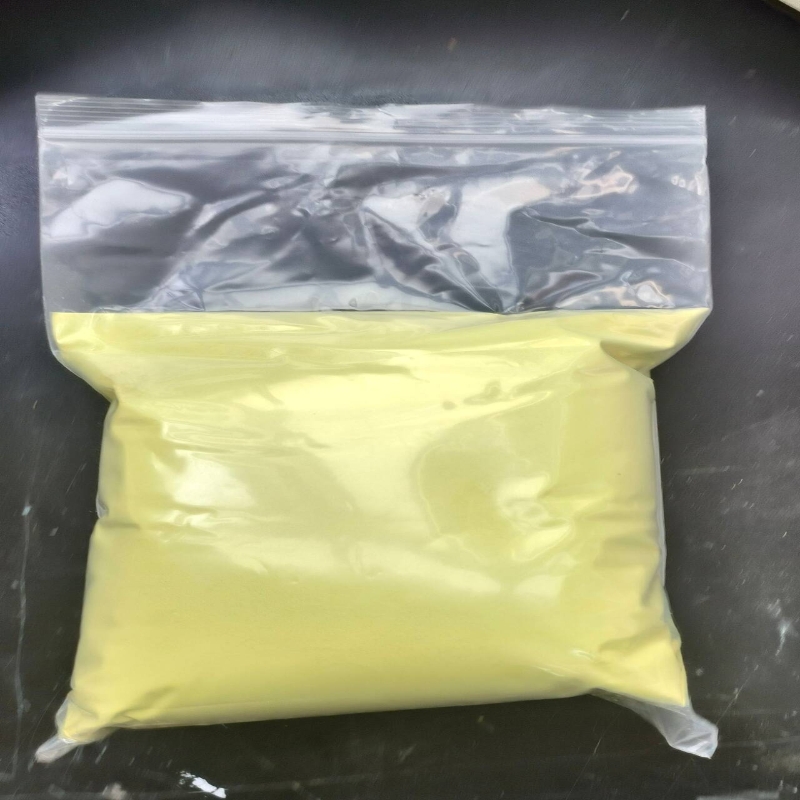-
Categories
-
Pharmaceutical Intermediates
-
Active Pharmaceutical Ingredients
-
Food Additives
- Industrial Coatings
- Agrochemicals
- Dyes and Pigments
- Surfactant
- Flavors and Fragrances
- Chemical Reagents
- Catalyst and Auxiliary
- Natural Products
- Inorganic Chemistry
-
Organic Chemistry
-
Biochemical Engineering
- Analytical Chemistry
- Cosmetic Ingredient
-
Pharmaceutical Intermediates
Promotion
ECHEMI Mall
Wholesale
Weekly Price
Exhibition
News
-
Trade Service
Recently, at the 2020 Kidney Week meeting of the American Society of Nephrology, Bayer announced the results of FIDELIO-DKD, a major clinical trial of the therapy finderone.
study showed that finerenone had significant kidney and cardiovascular benefits for people with type 2 diabetes who combined chronic kidney disease, and that finerenone slowed the progression of kidney disease by 18 percent over a medium 2.6-year period compared to current standard treatments.
results were published simultaneously in the New England Journal of Medicine (NEJM).
: New England Journal of Medicine Chronic kidney disease is one of the most common complications of diabetes and an independent risk factor for cardiovascular disease.
as the disease progresses, more than a-half of people with diabetes will eventually develop chronic kidney disease and even develop kidney failure.
is known to trigger processes of kidney and heart damage (such as inflammation and fibrosis) by overactivated salt corticosteroids.
Finerenone is a research nonsteroidal selective salt corticosteroid (MR) antagonist that reduces the harmful effects of overactivation of salt corticosteroids.
FIDELIO-DKD is a randomized, double-blind, and placebo-controlled Phase 3 trial led by Dr. George Bakris, a professor of medicine at the University of Chicago, in more than 1,000 clinical centers in 48 countries worldwide, including 5,734 patients with type 2 diabetes who combined chronic kidney disease.
is one of the largest studies to date on diabetic nephropathy, according to the University of Chicago Medical Center.
the ratio of urine protein (mg) to creatinine (g) in these patients was 30 to <300, and the estimated globular filtration rate (eGFR) was 20 ml/min/1.73 m2 to <60 ml/min/1.73 m2, already suffering from diabetic retinal disease, or urine protein (mg) with creatinine (g) ratio of 300 to 5000 and eGFR of 25 ml/min/1.73 m2 to <75 ml/min/1.73 m2.
patients were randomly grouped 1:1 to receive finerenone or a placebo.
Almost all patients had received the maximum dose of renin-angiosulose system (RAS) inhibitors prior to the start of the study, but less than 5% of patients had taken SGLT2 inhibitors, compared with less than 10% of those who started using these drugs during the study.
of follow-up was 2.6 years.
Compound prognosis events with renal failure, a continuous decline of at least 40% of eGFR, or death from kidney disease occurred in 17.8% (504/2833 cases) of the finerenone group, and 21.1% (600/2841) in the placebo group, which reduced the risk of these prognostic events by 18%.
secondary endpoints were a complex event of cardiovascular death, non-fatal heart attack, non-fatal stroke, or hospitalization for heart failure.
the proportion of secondary endpoint events in the Finerenone group and the placebo group was 13.0% and 14.8%, respectively, and the risk in the finerenone group was reduced by 14%.
effects of lysine Finerenone and placebo on renal function (A, B, C) and cardiovascular events (D).
incident rates were similar in both groups (Photo Source: Resources1).
Patients in the Finerenone group were more likely to have elevated blood potassium levels (18% vs. 9%), but the risk of stopping the drug due to severe high potassiumemia adverse events remained relatively low, but still higher than in the placebo control group (2.3% vs. 0.9%).
high potassium levels can lead to arrhythmic disorders.
, the results showed that in patients with type 2 diabetes who combined chronic kidney disease, finerenone reduced the progression of chronic kidney disease and reduced cardiovascular events.
References, George L. Bakris, et al., (2020). Global elysy of use of of disparities in caesarean sections. N Engl J Med, DOI: 10.1016/S0140-6736 (18) 31928-7 Effect of Finerenone on Chronic Kidney Disease Outcomes in Type 2 Diabetes. DOI: 10.1056/NEJMoa2025845. Retrieved October 26, 2020, from




![2-(Hydroxymethyl)benzo[b]thiophene](https://file.echemi.com/fileManage/upload/cas/593/e79a972f-b55d-4dc1-9113-841c417e0a89.png)


